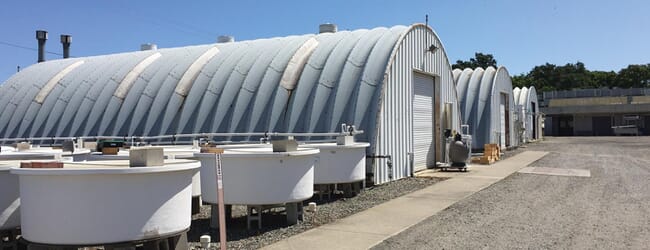
21,000 fish died of possible chlorine exposure at the CABA lab earlier this week
According to a statement from UC Davis, the university is in the process of investigating where its processes failed and any potential risks at other research facilities on campus. It did not specify which type of fish died in the lab, but did say they were caring for the surviving fish.
“The loss appears to be due to chlorine exposure, to which fish are especially sensitive," the statement said.
Researchers and students affiliated with CABA conduct multiple avenues of aquatic research, including bioenergetics and environmental stressors on fish species like Chinook salmon and sturgeons.
As part of the CABA and the university investigation, the bodies will notify regulatory and funding agencies, as well as their research collaborators. They will initiate an independent external review of their facilities and lab practices, and develop mitigation plans for the research programmes that were directly affected by the mortality.
“We know that many researchers, regulatory agencies, Native American tribes and other partners trust us to care for their aquatic species. We will work hard to earn that trust by conducting a thorough review of our facilities, holding ourselves accountable for what happened and taking steps to prevent it from happening ever again," the university statement reads.
“We share the grief of the faculty, staff and students who worked to care for, study and conserve these animals. The people who conduct and support the research at this facility are conservationists, ecologists and veterinarians whose life work is devoted to understanding and supporting these species. We recognise that this loss is particularly devastating to our community. We commit to understanding what happened and making changes to the facility so that we can ensure that this does not happen again,” it concludes.




